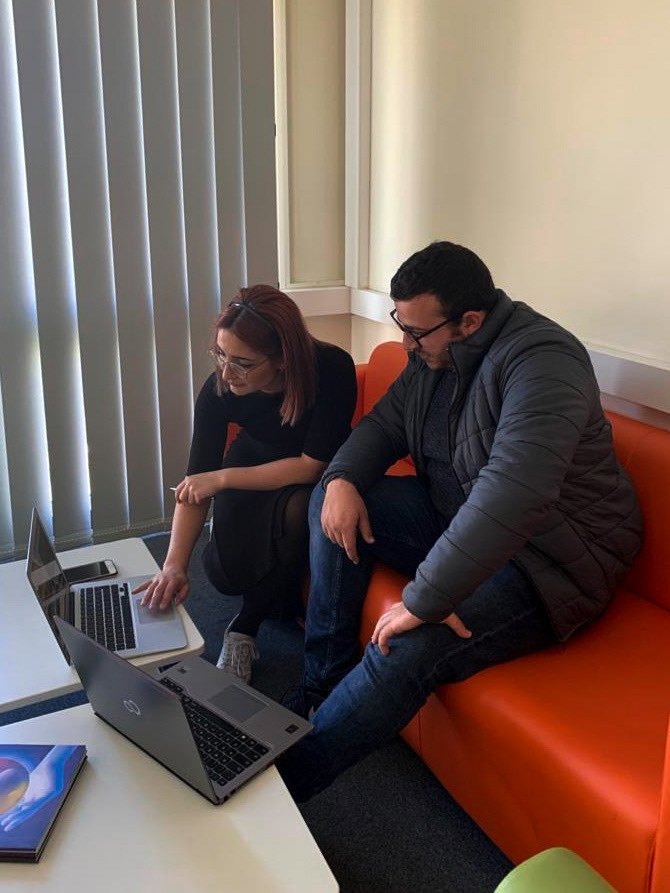Technology Transfer Offices (TTOs), researchers and PhD/ Postdoc students face different challenges; TTOs, face the challenge of creating connections with academics at their institutes, researchers juggle the stresses of grant applications, with the administration requirements of fulfilling MTA requests and student development, and PhD and Postdocs debate the question of what the next step in their careers should be and how to gain the relevant training alongside their full-time role.
The Ximbassador Programme, run by the university’s TTO in association with Ximbio, can help resolve some of these challenges, whilst also providing the institute with societal impact and value. We spoke with three people from the University of Malta - Pierre, a researcher, Jeremy, a Ximbassador and Marie, from the TTO office to discover how the Ximbassador Programme benefited them.

Introducing the Ximbassador Programme
The University of Malta decided to partner with Ximbio, after meeting them at an industry conference. With no one in the TTO focusing on commercialising life sciences research reagents, the partnership was quickly established.
“We at the TTO, never focused our energy on life sciences research reagents, they were stored by academics for use in thesis/ MTA requests. Academics are usually more reserved about their reagents and materials, but now they seem to have opened up. Ximbio is making it easy – they have a global network, provide a fair share of revenue and can help us commercialise our reagents. They were also very flexible - we can still store the reagents here, but they can be requested through Ximbio.”
– Marie, TTO
As part of this partnership, the University of Malta had the opportunity to implement the Ximbassador Programme on campus. The Ximbassador Programme is a fully funded, 6-month internship targeted towards PhD students and Postdocs aiming to introduce them to the world of technology transfer.
“We were interested in introducing the Ximbassador Programme to the University of Malta as soon as I heard about it. It sounded like a great way to bridge the gap between academics and TTO. Ximbassadors have more contact with the academics since they are research officers themselves and they can get the word out faster at the university through their contacts within the labs. The Ximbassador is also more knowledgeable on the reagents and what is stored at the university.”
– Marie, TTO
Recruiting a Ximbassador
Finding a Ximbassador for the Programme was relatively straightforward for the TTO, as they were assisted by Pierre. Pierre is a cancer researcher, working mostly on leukaemia differentiation and solid tumour immunotherapy with some work on stem cells. With numerous contacts across the life sciences department, Pierre was able to find the perfect candidate for the role: Jeremy. Jeremy is a 4th year, PhD student, working on plant extracts and how they can be adapted specifically for use as prophylactic agents to prevent skin cancers.
“I received an email with details about the Internship and I was intrigued. I read more about the Internship on Ximbio’s website. The fact that this internship was paid and only 5 hours a week, meant I could fit it around my lab work. I always like new challenges and I couldn’t let an opportunity like this one run away from me.”
- Jeremy, Ximbassador
“I had no concerns around the time requirements from my PhD student or that it would interfere in their lab work. If the student is chosen well, I don't think it should be a worry. The Ximbassador Programme also indirectly encourages collaboration across different research groups, which in my mind is only a positive.”
– Pierre, Researcher
The Ximbassador Programme
The Ximbassador Programme runs for a minimum of 6-months. The purpose of a Ximbassador is to liaise with researchers on campus and to identify life sciences research reagents that have commercial potential and are of interest to scientific research.
“I didn’t know what to expect going into the Internship, but I knew that it would be an opportunity to become involved in tech transfer. As the first Ximbassador at the University of Malta, my role involved trying to raise awareness of both the TTO and Ximbio, spreading the word by any means possible - emails, setting up meetings etc.”
- Jeremy, Ximbassador
“The Ximbassador programme is very fruitful in terms of contacting academics. Apart from that our Ximbassador, Jeremy, is working hard to get the word out to Academics, who are still quite reserved about their findings, which we find very helpful.”
– Marie, TTO
What have been the results of the Ximbassador Programme?
Although only having been implemented a short time at Malta University, the Programme has already provided benefits to the TTO, academic community and Ximbassador.
“The main benefits we are seeing is that the academics know about our partnership and that Jeremy has created awareness about the tech transfer office itself. We are finding the Ximbassador Programme very useful, so we recommend it highly!”
- Marie, TTO
“I like the Ximbio concept and the Ximbassador Programme very much. I hope to spend more time contributing to it with the Ximbassador - I have not yet spent enough time providing products!”
– Pierre, Researcher
“If you have the opportunity to become a Ximbassador, I would say definitely go for it – it’s a very rewarding experience. The first month can be challenging as you try to increase awareness, especially if academics are completely unaware of Ximbio, so you will need patience! As time goes on people become more receptive and aware of Ximbio. I recently got confirmation of our first reagent and I’m hopeful more will follow. Personally, this internship has definitely influenced my career; If I ever need to commercialise, I know who to go to. More researchers at the university now know who I am and what I am working on – I’ve got a lot more collaboration opportunities as a result.”
– Jeremy, Ximbassador
